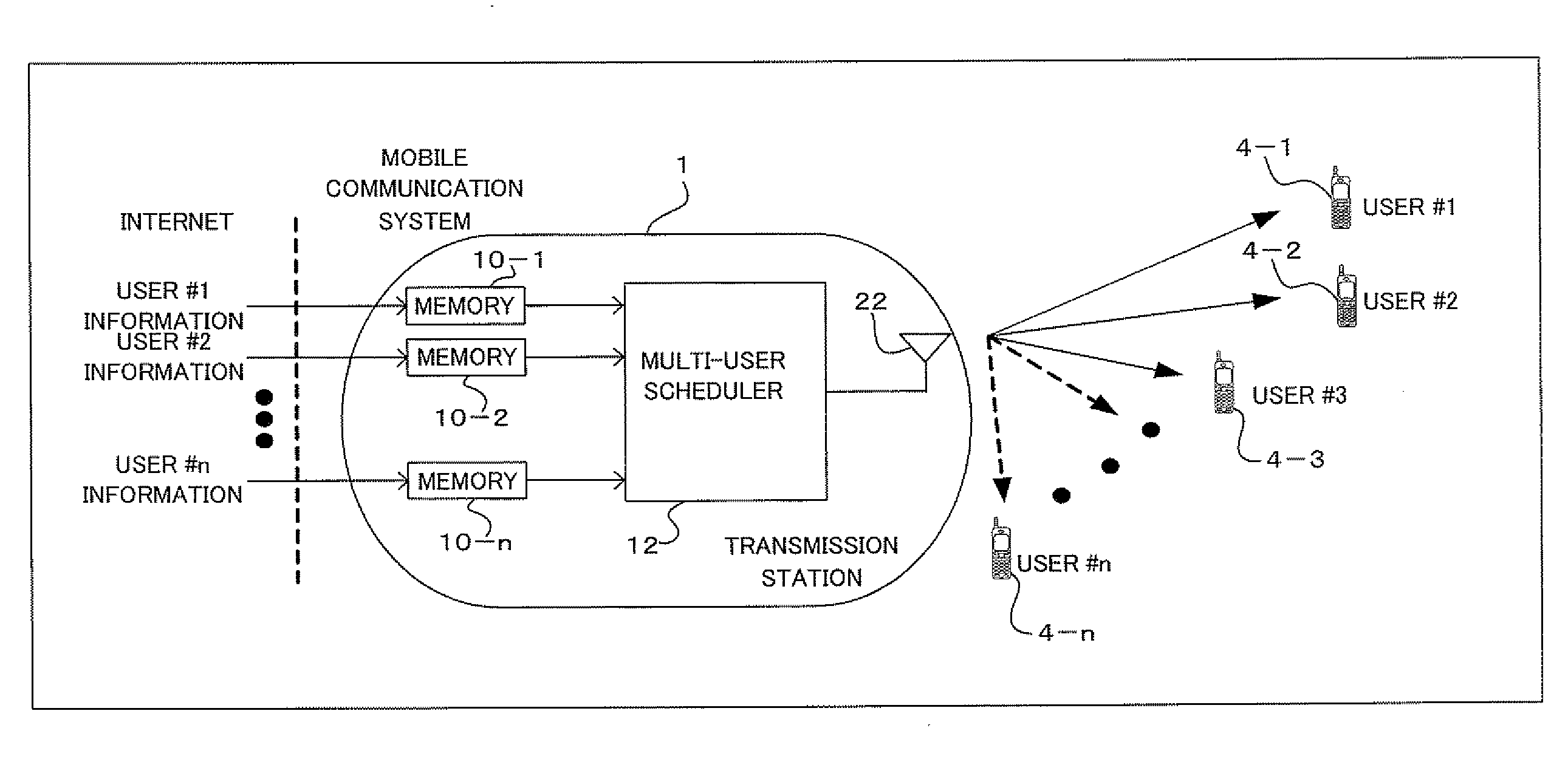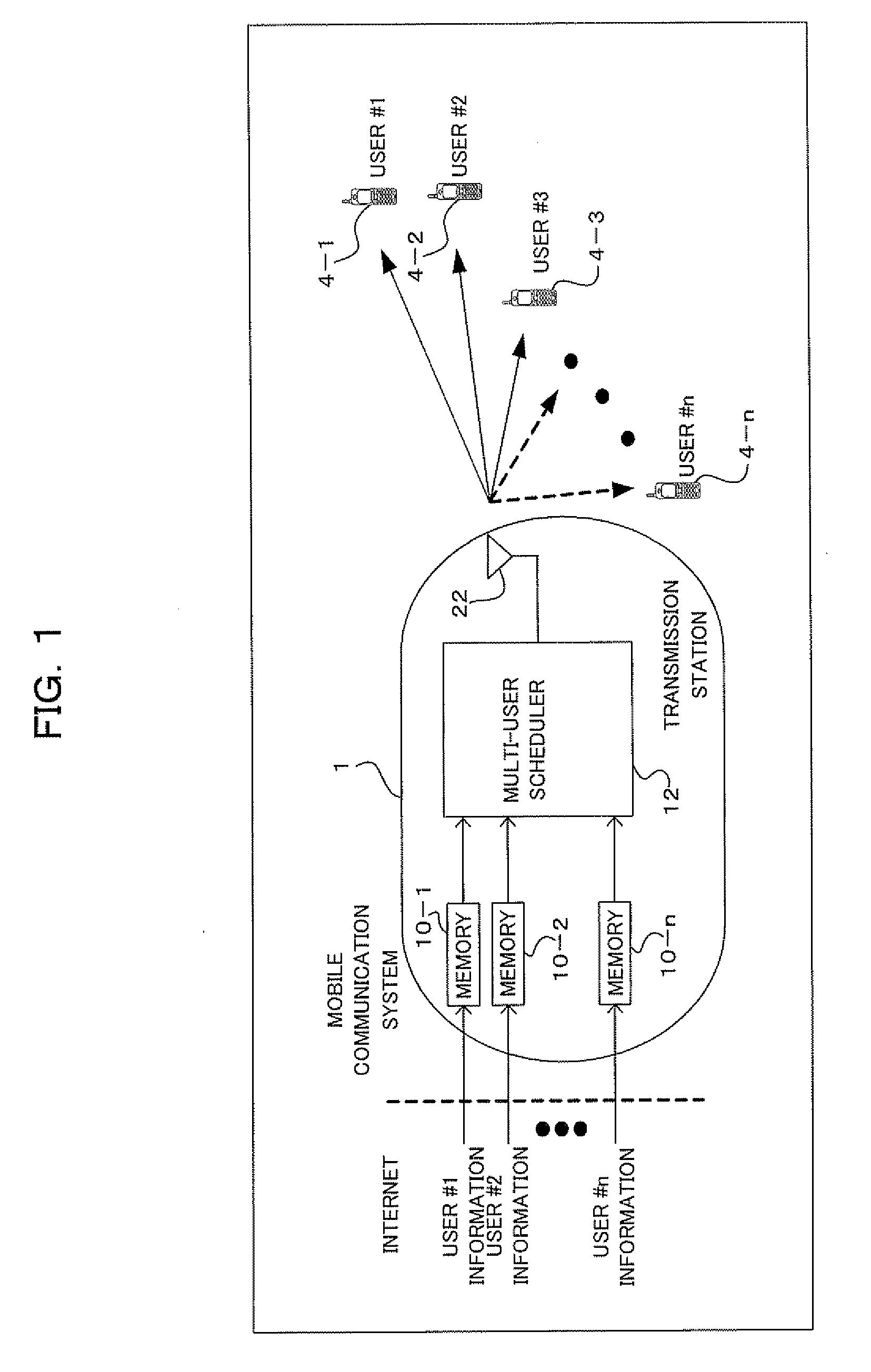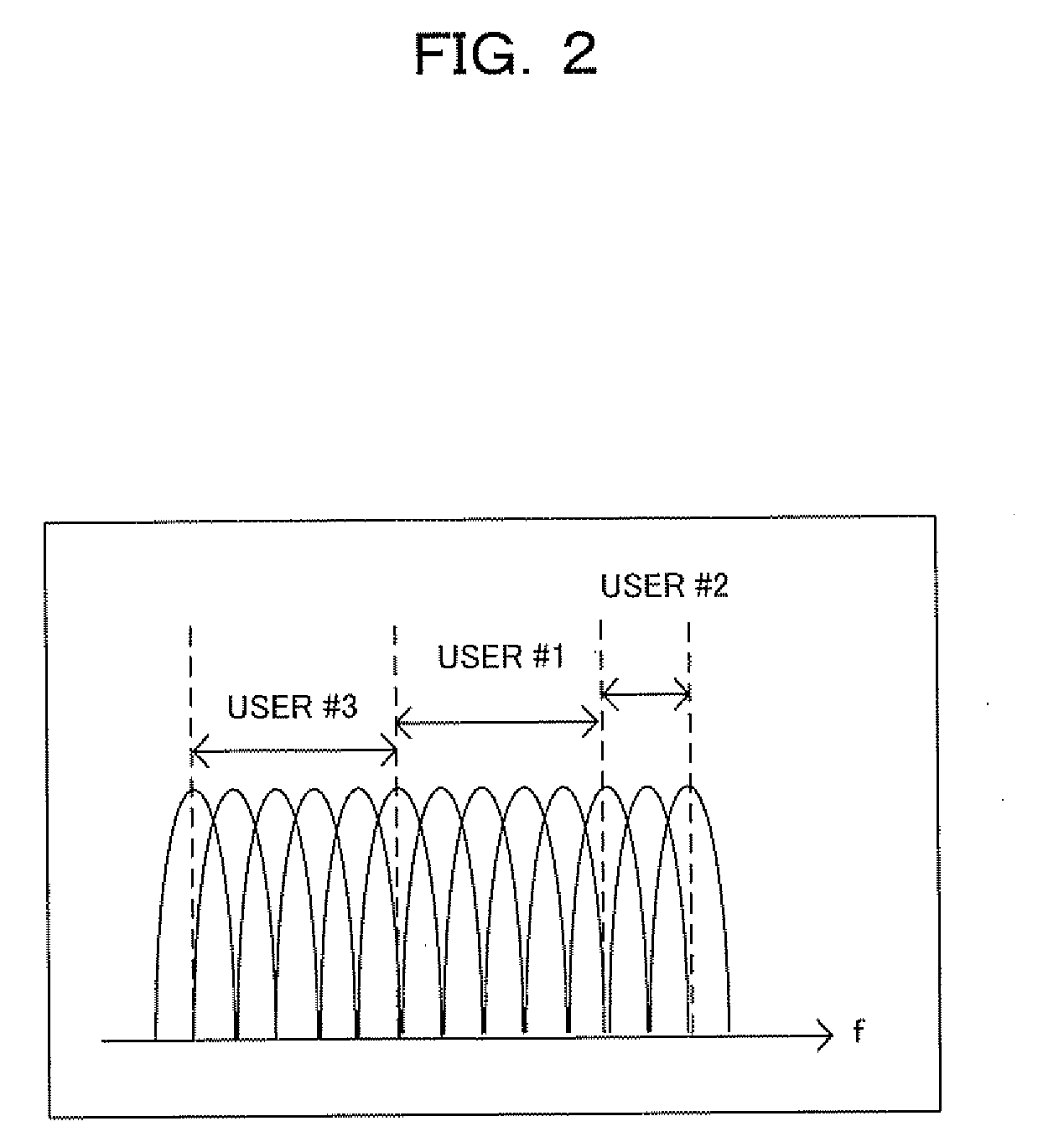Multicarrier communication apparatus and peak suppressing method for the same
a communication apparatus and multi-carrier technology, applied in diversity/multi-antenna systems, multi-frequency code systems, transmission path division, etc., can solve problems such as lowering the reception error rate, achieve peak suppressing with ease, eliminate useless operations of demodulation processing and decoding processing circuits, and achieve the effect of reducing the number of packet errors
- Summary
- Abstract
- Description
- Claims
- Application Information
AI Technical Summary
Benefits of technology
Problems solved by technology
Method used
Image
Examples
first embodiment
[B] FIRST EMBODIMENT
[0123]FIG. 4 is a block diagram illustrating a construction of a multicarrier (OFDM) transmission system according to a first embodiment with a focus on a transmitter (multicarrier communication apparatus); FIG. 5 is a diagram illustrating a construction of a multicarrier (OFDM) transmission system according to the first embodiment of the present invention with an attention paid to a receiver. For example, the transmitter 1 shown in FIG. 4 is applicable to base station apparatuses, and the receiver 4 shown in FIG. 5 is applicable to mobile terminal apparatuses. In this instance, hereinafter, the transmitter 1 will be also called the base station 1, and the receiver 4 will be also called the terminal 4. Further, the number of sub-carriers is assumed to be k (k is an integer equal to or larger than 2). Further, in FIG. 4, the wiring added with “ / ” indicates that an orthogonal multiplexed I-Q signal on a complex plane is transmitted.
[0124]As shown in FIG. 4, with a ...
second embodiment
[C] SECOND EMBODIMENT
[0187]FIG. 13 is a block diagram illustrating the above described transmitter 1 according to a second embodiment. The construction of the transmitter 1 of FIG. 13 differs from the construction of the transmitter 1 above described with reference to FIG. 4, in that the coder 14 and the modulator 15 are provided for the previous stage to the frequency allocator 13. That is, in the construction of the present example, adaptive modulation is performed for each user, not for each sub-carrier (or each sub-carrier group) shown in FIG. 4, before user data streams are mapped to sub-carriers.
[0188]In the present example, although adaptive modulation optimal for each sub-carrier (or each sub-carrier group) is not performed, the adaptive modulation scheme can be specified for each user, so that it is possible to reduce the amount of control information.
[0189]In this instance, in FIG. 13, the construction elements added thereto with reference characters the same as those alre...
third embodiment
[D] THIRD EMBODIMENT
[0190]FIG. 14 is a block diagram illustrating a third embodiment of the above described transmitter 1. The construction of the transmitter 1 shown in FIG. 14 differs from that of the transmitter 1 shown in FIG. 4, in that the block in the stage previous to the P / S converter 20 is replaced with a block including: multiple transmission signal generators 36-1 through 36-M; the multiple peak evaluators 18-1 through 18-M corresponding to the transmission signal generators 36-1 through 36-M, respectively; an optimal generation scheme evaluator 37; and a generation scheme notifying unit 38. In this instance, the construction elements added thereto with reference characters the same as those already described are the same as or similar to those already described unless otherwise described. In addition, the construction of the terminal 4 need not be different from that of the receiver 4 in the first embodiment (FIG. 5).
[0191]Here, as shown in FIG. 15 and FIG. 16, the tran...
PUM
 Login to View More
Login to View More Abstract
Description
Claims
Application Information
 Login to View More
Login to View More - R&D
- Intellectual Property
- Life Sciences
- Materials
- Tech Scout
- Unparalleled Data Quality
- Higher Quality Content
- 60% Fewer Hallucinations
Browse by: Latest US Patents, China's latest patents, Technical Efficacy Thesaurus, Application Domain, Technology Topic, Popular Technical Reports.
© 2025 PatSnap. All rights reserved.Legal|Privacy policy|Modern Slavery Act Transparency Statement|Sitemap|About US| Contact US: help@patsnap.com



